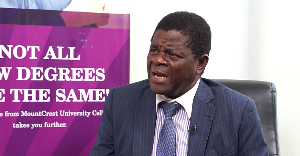U.S. biotech billionaire Patrick Soon-Shiong has spent the last year at home, but he’s not been idle. It’s given him the time to plot a way to help Africa produce its own vaccines.
ImmuntyBio Inc., in which he is a part owner, has signed a deal with The BioVac Institute, a state-backed South African vaccine company, to manufacture coronavirus doses from scratch in the country.
He’s also giving an initial 3 billion rand ($214 million) to the nation of his birth to help pass on technology for COVID-19 shots and other therapies that can be exported around the continent.
The source of his mission can be traced back almost half a century, when he left South Africa as a newly qualified physician to gain expertise he planned to bring back about five years later. Born in Port Elizabeth, a coastal town recently renamed Gqeberha, to China-born parents, he studied in Johannesburg and the University of British Columbia before settling in Los Angeles.
“I underestimated the time” it would take, Soon-Shiong, 68, said in an interview this week from his home in California. “But not only have I been able to harvest the technology, I’ve been able to generate the technology.”
The interim decades have seen Soon-Shiong rack up a fortune following his invention of cancer drug Abraxane, and he has sold two firms for a combined $7.4 billion.
His net worth is now $15.3 billion, according to the Bloomberg Billionaires Index, and his assets include the Los Angeles Times newspaper and a share of the Los Angeles Lakers basketball team, which he bought from former star player Magic Johnson.
As the COVID-19 pandemic underscores many existing global health inequalities, the extent to which Africa has been left behind has become increasingly apparent. While African countries have administered almost two thirds of their vaccine supplies, less than 0.5% of the continent’s 1.3 billion people have been fully immunized.
At the same time, many developed nations are far advanced with their rollouts, and the U.S. is preparing to inoculate school children despite calls to share excess doses.
That’s raised fears of the emergence of new, more deadly coronavirus variants that could in turn undermine the efficacy of the current set of vaccines.
There are fewer than 10 vaccine manufacturers in Africa, based across Egypt, Morocco, Tunisia, Senegal and South Africa, and most of those carry out packaging and labeling rather than manufacturing.
“They are so tired of standing behind the queue,” Soon-Shiong said. “You need your own self-sufficiency to be able to control your own destiny.”
Soon-Shiong’s vision includes bringing together a coalition of funders, governments and companies to ensure new vaccines are developed in Africa and can be manufactured in appropriate quantities. He expects to release details of the coalition in July, and says he has spoken to South African President Cyril Ramaphosa and Health Minister Zweli Mkhize among others.
“I didn’t think it would ever happen, but it is,” said Glenda Gray, president of the South African Medical Research Council and co-study lead of a Johnson & Johnson Covid-19 vaccine trial. “I guess he wants to give something back. He is a doctor, he was trained in South Africa and he wants to do something worthwhile.”
Required Scale
Soon-Shiong acknowledges building the required scale won’t happen overnight, but he also doesn’t see it taking another decade if he gets the buy-in needed from local partners. The businessman has been in touch with Aspen Pharmacare Holdings Ltd., Africa’s largest drugmaker and local manufacturer of the J&J vaccine, and is scouring South Africa for warehouse space.
“There’s no question there is a great unmet need, now it’s time to bring together the resources,” he said. “We have to go to places like the World Bank and the World Trade Organization and even entities in the U.S. to say it’s in your self interest to help fund this.”
ImmunityBio’s hAd5 T-cell vaccine targets the nucleocapsid protein, which is less prone to mutations, as well as the the spike proteins found on the coronavirus. Phase One trials are underway in the U.S. and South Africa, and the candidate is being considered as a booster shot in a study of almost 500,000 South African health workers, according to Gray.
Vaccine Capsule
The vaccine may also be made in the form of a capsule, greatly easing the challenge of distribution doses in developing countries.
“We may become a primary vaccine and a booster, but I don’t care if we are just the boost because we want to encourage as many vaccines as possible to come” into South Africa, Soon-Shiong said.
This is all the more important as Covid-19 mutates and spreads. The African Union’s health agency last week urged countries on the continent to increase testing for the coronavirus as more nations report different variants of the disease.
Soon-Shiong’s company has been working on a map of Covid-19 strains, which includes analysis of about 300,000 mutations.
“Covid unfortunately is here to stay. I think of Covid as cancer and we have to address it with eyes wide open,” he said. “The good news about Covid is it’s opened up scientific interrogration at levels we’ve never seen.”
Africa News of Sunday, 23 May 2021
Source: bloomberg.com

















